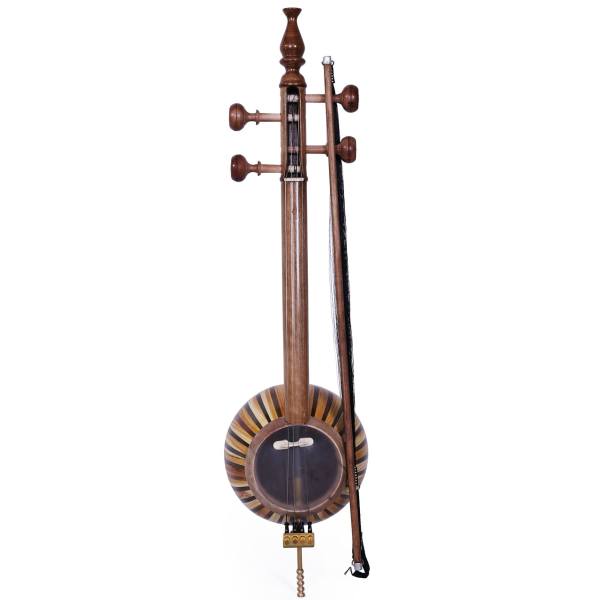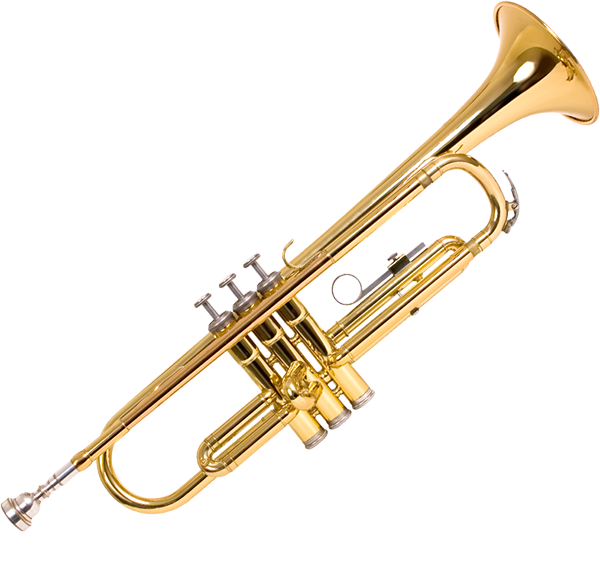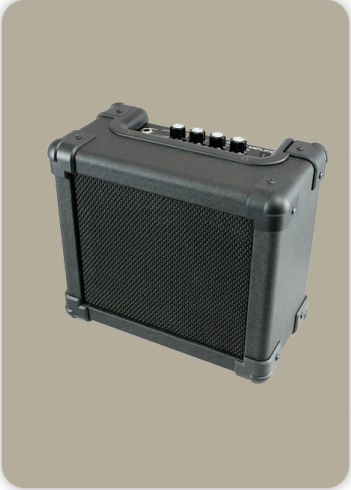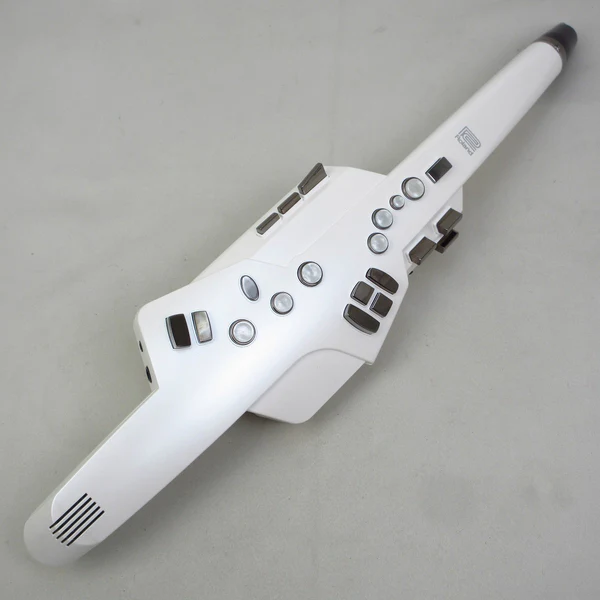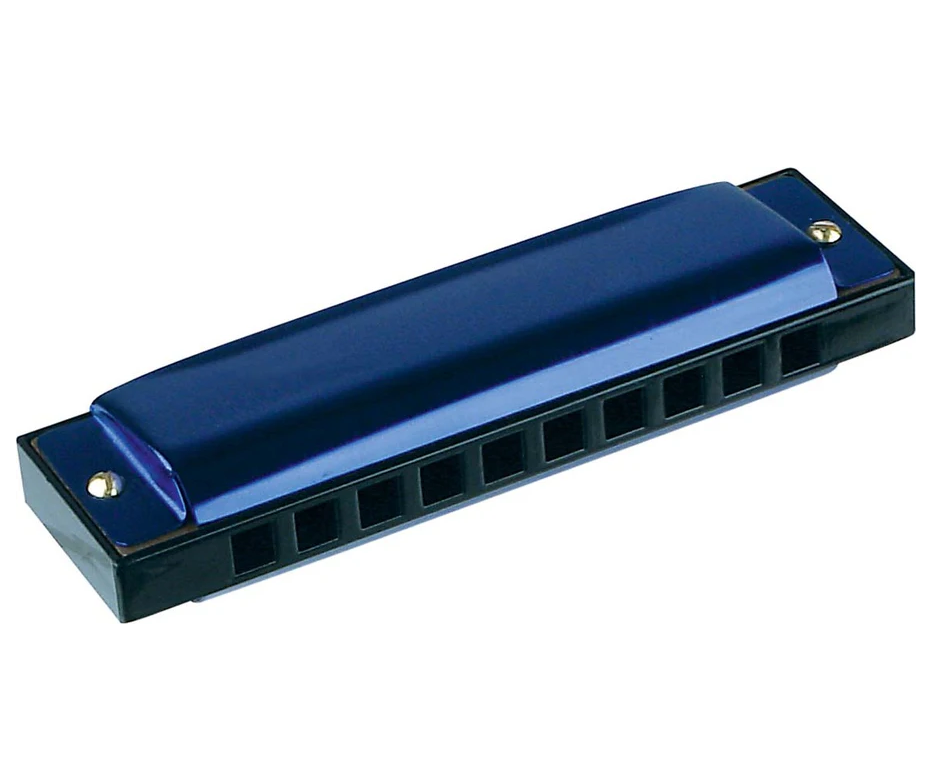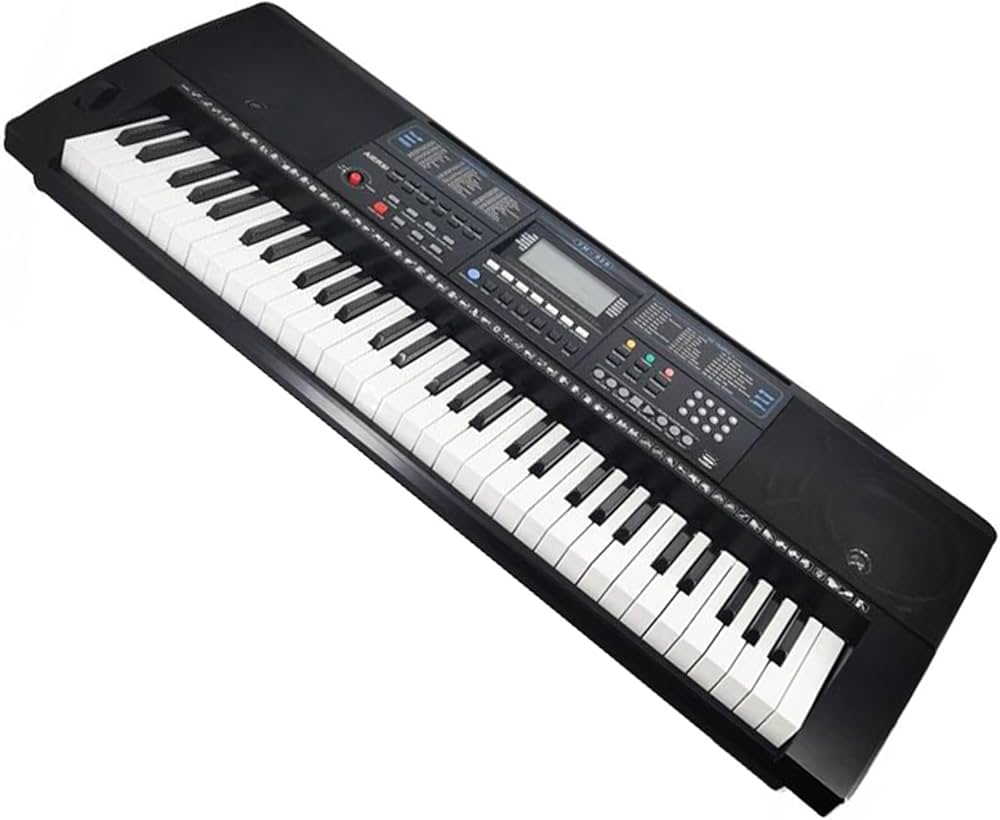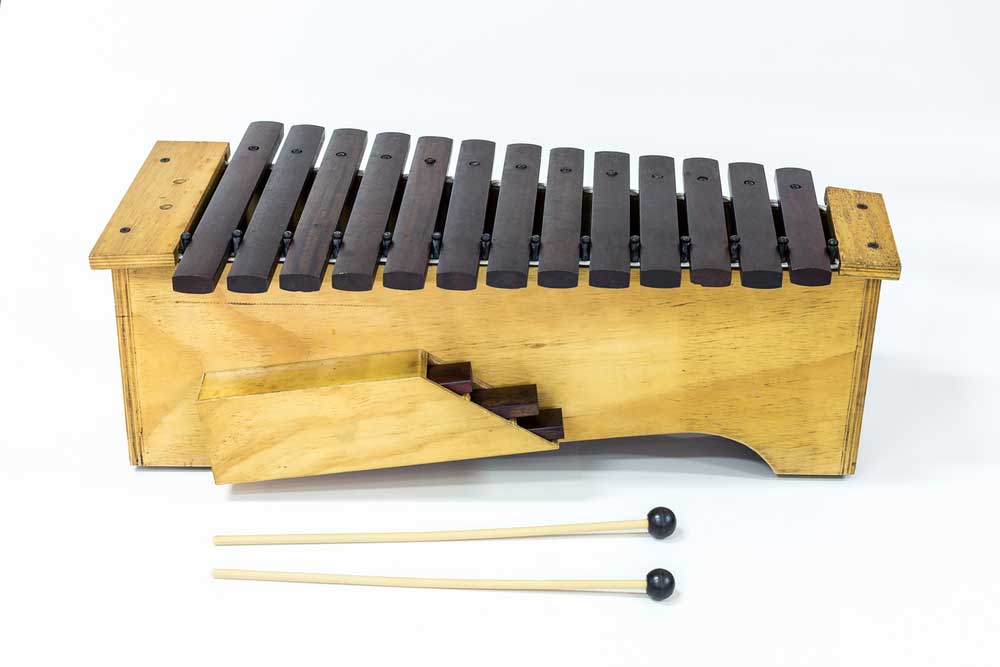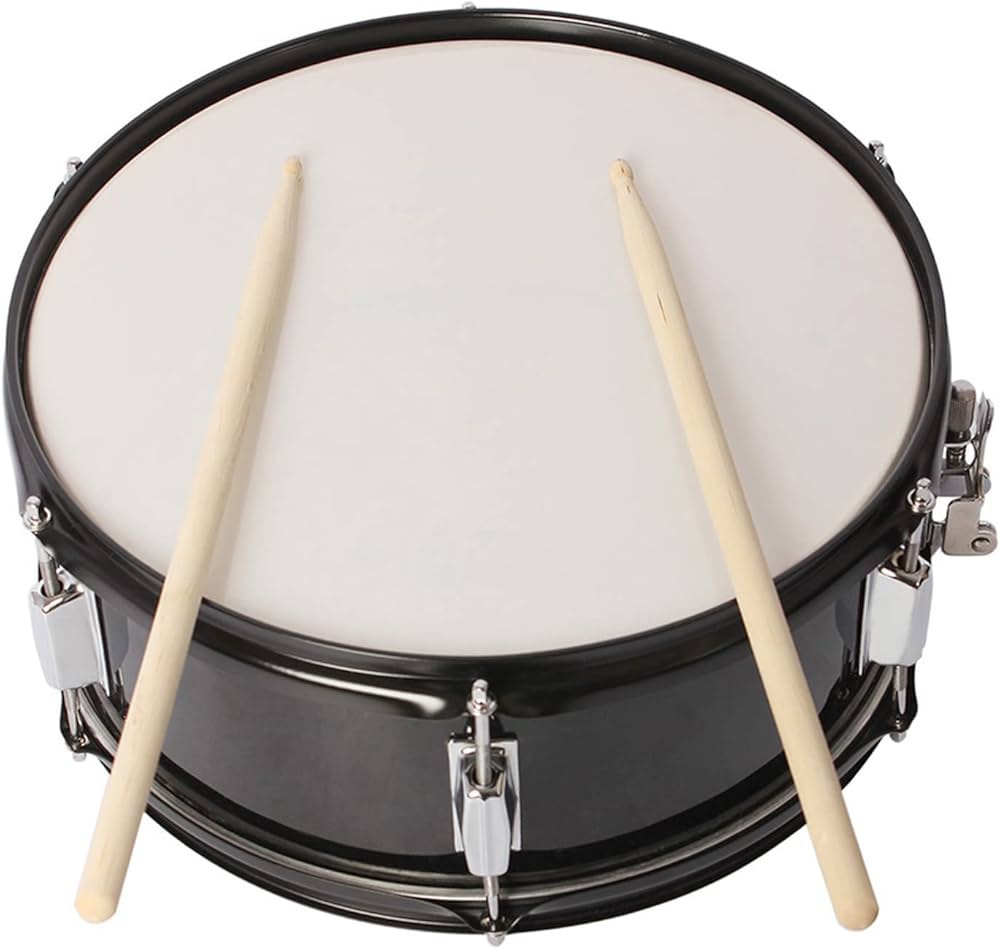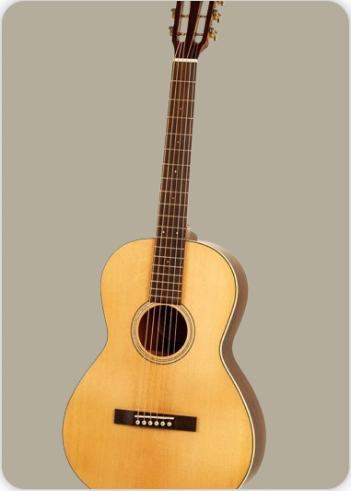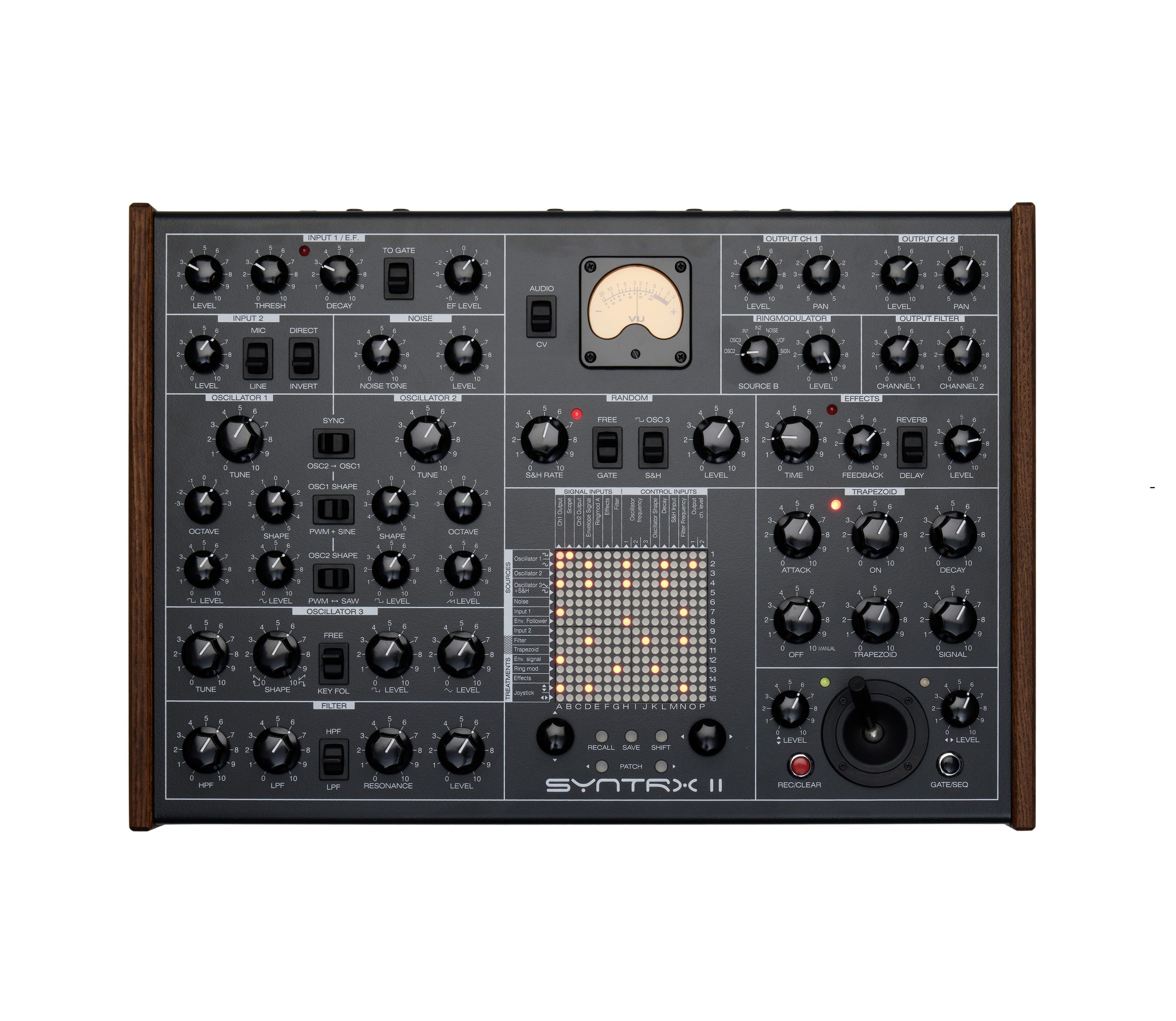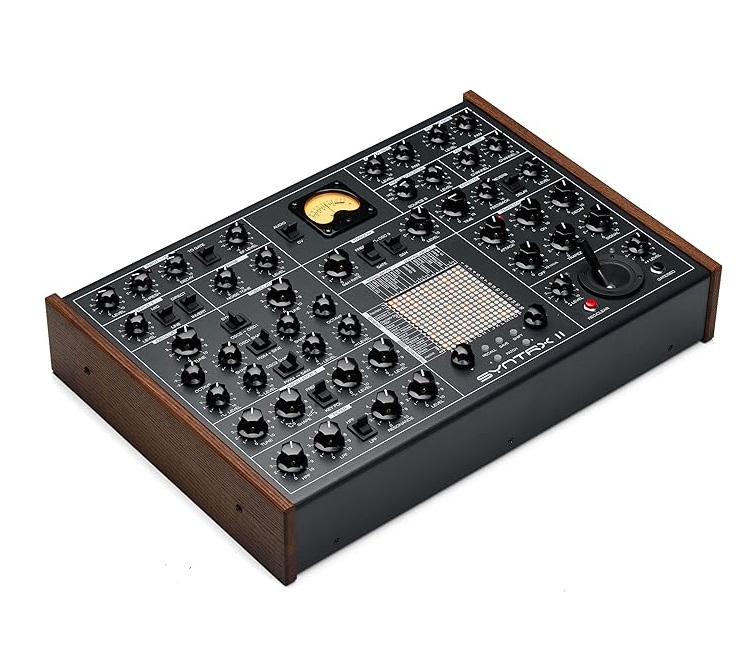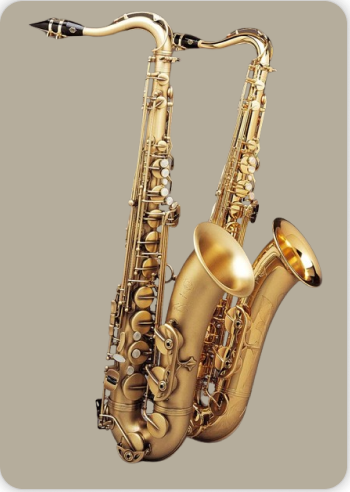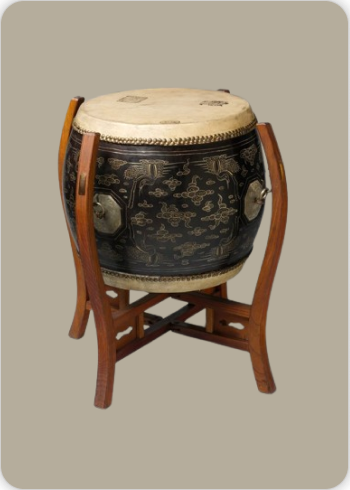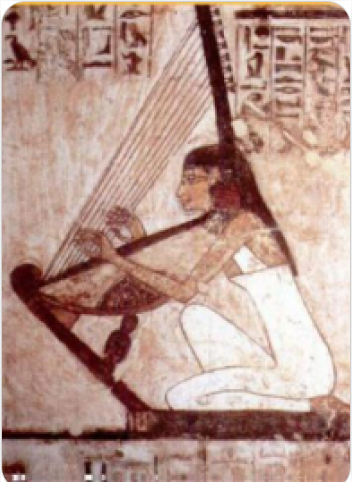Erica Synths SYNTRX
Electronic Instruments
Europe
Between 1901 and present
Video
The Erica Synths SYNTRX is a modern reinterpretation of the legendary EMS Synthi AKS, an iconic analog synthesizer from the 1970s. Designed and manufactured by Erica Synths, a Latvia-based company known for its innovative approach to modular and semi-modular synthesizers, the SYNTRX retains the core design philosophy of the Synthi AKS while introducing modern enhancements. With its matrix-based patching system, robust analog circuitry, and distinct sound-shaping capabilities, the SYNTRX stands out as a unique instrument in contemporary electronic music production.
Type of Instrument: The SYNTRX is an analog synthesizer, specifically a semi-modular synthesizer with a matrix-based patching system. Unlike fully modular synthesizers that require patch cables, the SYNTRX features a pin-matrix system, which allows users to connect different components without physical cables. This makes it a highly flexible instrument for experimental sound design and electronic music production.
History
The SYNTRX traces its lineage to the EMS Synthi AKS, a pioneering synthesizer developed in England in the early 1970s. The EMS Synthi AKS was influential in the development of electronic music and was used by notable artists such as Brian Eno, Pink Floyd, and Jean-Michel Jarre. Its unique design, featuring a joystick, a pin-matrix patchbay, and a compact form factor, set it apart from other synthesizers of the time. Erica Synths, recognizing the importance of this historical instrument, developed the SYNTRX in the 21st century, blending the vintage sound of the EMS Synthi AKS with modern technological advancements. The SYNTRX was introduced in the 2020s and quickly gained popularity among synthesizer enthusiasts and professional musicians.
Construction
The SYNTRX is built with high-quality analog components and features a sturdy metal chassis, making it a reliable instrument for both studio and live performances. Its layout consists of three oscillators, a multimode filter, an envelope generator, a ring modulator, a spring reverb, and an integrated joystick controller. The key element of its design is the matrix patchbay, which replaces traditional patch cables with a grid of electronic switches. This allows for a more intuitive workflow and greater flexibility in sound design.
Types and Features
Erica Synths offers two main types within this series: SYNTRX and SYNTRX II. Each model has distinct features tailored to different needs in electronic music production:
SYNTRX: This model boasts three highly accurate VCOs that track well over eight octaves, making it ideal for creating complex melodies or harmonies. It includes features like a resonant VCF (Voltage-Controlled Filter), spring reverb, looping envelope generator, joystick controller, input amplifier for microphone to line-level signals, three VCAs (Voltage-Controlled Amplifiers), output signal filter, analogue CV/audio signal level indicator, built-in speakers, sample & hold circuit with individual clocking options for each VCO.
SYNTRX II: This version is equipped with two perfectly stable main oscillators featuring CV-controlled waveforms along with a modulation oscillator offering variable waveforms. Key components include highpass and lowpass filters used in series configuration; free-running or gate-synced sample & hold circuit; multi-color noise generator; DC-coupled instrument inputs complete with signal inversion capabilities; unique ring modulator design; looping trapezoid envelope generator paired alongside two VCAs dedicated to master output filtering. Additionally, it incorporates powerful digital effects such as delay and reverb developed collaboratively with 112db.com.
Both models are renowned for their extensive analog patch matrices that allow users immense flexibility when routing signals between modules.
Characteristics
The SYNTRX is known for its raw, organic sound and its ability to create both conventional and highly experimental tones. Some of its key characteristics include:
Analog warmth: The fully analog signal path delivers a rich and warm sound, characteristic of vintage synthesizers.
Matrix-based patching: The pin-matrix system allows for non-traditional routing of signals, enabling unique sound explorations.
Versatile modulation: The joystick and modulation sources provide expressive control over the sound.
Spring reverb: The built-in spring reverb adds depth and character to the sound.
Sound Production
Sound production on both models is centered around creating rich analog textures through various modules like oscillators (VCOs), filters (VCFs), amplifiers (VCAs), noise generators, ring modulators among others.For instance:
- The multiple oscillators provide diverse waveform options which can be shaped further using waveshapers.
- Filters help refine these sounds by emphasizing specific frequency ranges.
- Noise generators add randomness or texture depending on how they’re integrated into patches.
- Ring modulators introduce metallic timbres through amplitude modulation techniques.
These components work together seamlessly thanks to sophisticated routing systems facilitated by their respective patch matrices.
Playing Methods
The SYNTRX can be played and controlled in multiple ways, including:
Knob and fader control: Users can manually adjust parameters to shape the sound.
Joystick manipulation: The integrated joystick allows for dynamic modulation.
External control: The synthesizer can be integrated with other electronic instruments via CV (Control Voltage) and MIDI, making it compatible with modular systems and DAW (Digital Audio Workstation) environments.
Roles in Music
The SYNTRX is widely used in experimental music, ambient soundscapes, electronic compositions, and avant-garde performances. It excels in creating unique textures and evolving soundscapes that are difficult to achieve with conventional synthesizers. It is also used in film scoring and sound design, where its ability to generate eerie, futuristic, and atmospheric tones makes it a valuable tool for composers.
Cultural Significance
As a successor to the EMS Synthi AKS, the SYNTRX carries a legacy of pioneering electronic music. The original EMS Synthi AKS played a crucial role in the development of electronic and experimental music in the 20th century. By reviving this design with modern technology, Erica Synths has ensured that the spirit of innovation continues into the 21st century. The SYNTRX has been embraced by artists who value the unpredictability and expressiveness of analog synthesis, reinforcing its status as a modern classic in electronic music production.
From its historical roots to its contemporary impact, the SYNTRX exemplifies the enduring appeal of analog synthesis. With its powerful sound engine, intuitive interface, and deep modulation capabilities, it remains a coveted instrument among musicians seeking to push the boundaries of sound.
FAQ
What is the Erica Synths SYNTRX and its main features?
The Erica Synths SYNTRX is an analog synthesizer inspired by the EMS Synthi AKS. It features a matrix pin system for patching, three oscillators, a multimode filter, and built-in reverb. Designed for experimental sound design, it allows deep modulation and feedback exploration. Its rugged build and unique workflow make it a powerful tool for sound sculpting.
How is the Erica Synths SYNTRX used in music production?
SYNTRX is used in electronic, experimental, and ambient music for its deep modulation capabilities. The matrix patching system offers flexible routing, making it ideal for complex sound design. Artists use it for creating evolving textures, drones, and unconventional sounds. It integrates well with other modular and DAW setups via MIDI and CV.
What is the role of the Erica Synths SYNTRX in live performance?
In live performances, SYNTRX serves as a dynamic sound manipulation tool, offering hands-on control. Its touch-based matrix allows quick sound routing adjustments for improvisation. Performers use it for real-time modulation, noise textures, and abstract synthesis. Its sturdy build ensures reliability on stage.
 Links
Links
References
 Similar
Similar
Instruments
Other Instrument
Categories
